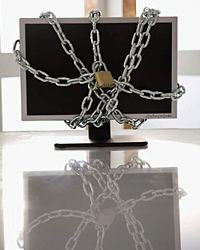Although search engines provide some sense of order to the Internet, this online frontier is still a wild place. There are billions of people using the Internet, both for entertainment and for professional purposes. Not everyone keeps up his or her professional image in the most effective way.
There are no rules for standard professional behavior online, but there are some basic steps that will make you look more like an expert and less like an amateur, no matter what field of work you're in. It's called online reputation management, and it impacts you and every other working professional.
Advertisement
Whether you like it or not, you probably already have a significant online presence. Between government documents, newspaper articles and self-generated content, it's not hard for others to dig up information about you. And whether those people are potential employers, co-workers or casual acquaintances, it's generally a good idea to put your best foot forward on the Web.
For example, although social networks like Facebook were designed more for casual socializing, more and more human resource managers use these sites to screen potential employees. You must realize that personal Web content can have an effect on you professional life.
Also be aware that if there are photos, videos or other types of evidence of your inappropriate behavior online, it's not necessarily the end of your career. You can take a few steps not only to mitigate the damage, but also put a better spin on your reputation.
And if you have a knack for spin and harnessing social media, you may even be able to turn a potentially disastrous online revelation into a positive professional development. That's called demonstrating your ability to maintain a positive attitude, overcome adversity and succeed in spite of obstacles -- a trait that employers and co-workers appreciate very much.
Even if you don't have any personal behaviors to conceal from professional colleagues, there are plenty of ways for you to maintain and burnish your online reputation. Keep reading to see specific tips for creating a reputable online persona.










